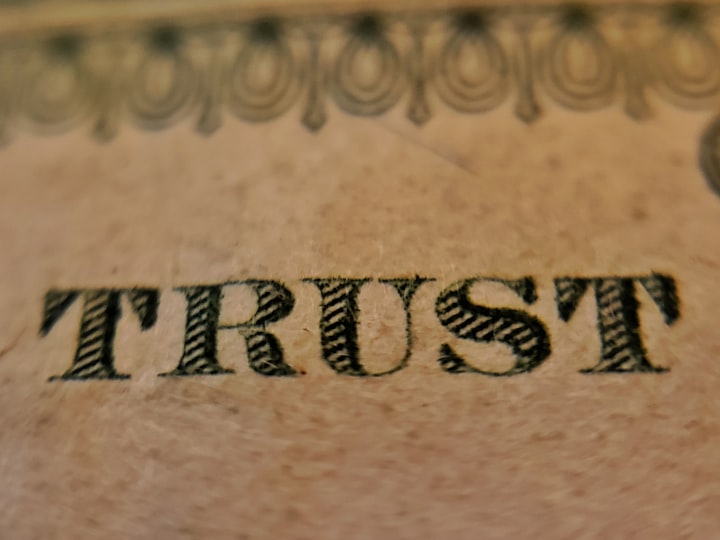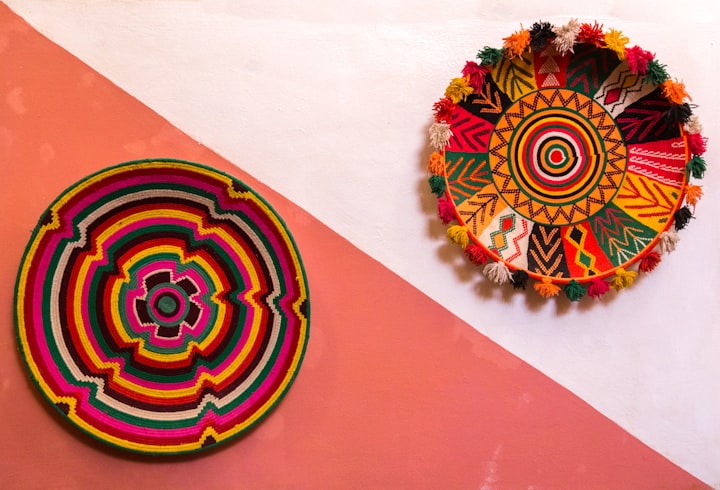8 Red Flags to Watch Out For in Polyamorous Dating
Recognizing bad behavior before it becomes a problem will help keep your relationships healthy

Dating can be complicated. It requires a lot of time, thoughtfulness, and energy, and it’s so disappointing to waste those things on someone who ends up throwing out red flags left and right. Recognizing behaviors that shouldn’t be happening is a great first step to keeping your relationships and your heart happy and healthy.
While some red flags exist in all intimate or romantic relationships, others are specific to relationships with multiple partners. Let’s take a look at some common warning signs that can pop up in polyamorous relationships.
Unhealthy behavior in existing relationships.
They say you can’t judge a book by its cover, but perhaps you can judge a book by the 18 preceding books in the series. Unhealthy or concerning behaviors in a potential partner’s existing relationships can be a strong sign to steer clear of further involvement.
Actions speak louder than words, and if you’re seeing behaviors like habitually badmouthing or complaining about other partners, less-than-honest behavior, or unreliability, pay attention. I always ask myself: why would they act any differently towards me?
Do their existing relationships show signs of toxicity? Codependence? Are they giving, or selfish? When they make plans with you, are they considerate towards their other partners? How do they talk about their other partners to you? How do they treat and talk about their family and close friends? Obviously all relationships have their strengths and weaknesses. But your partner’s other relationships often provide a preview of the kind of interaction they’re going to have with you.
Not having their own friends or social life.
Folks who haven’t been in polyamorous relationships before are often used to relying on their partner as their main social gateway. When I was monogamous, my husband and I had couple friends. We spent almost all of our time together. While I still have some of those in my current relationships, we also have our own social lives and I do not expect my social life to revolve around a new partner exclusively.
Relationships take work, and the more people you add to a polycule, the more care and keeping the relationships are going to require. When someone doesn’t have anyone but you to lean on in tough times, it can make for a quick road to burnout. On their website, I Am Poly(amorous) and So Can You, Andre Shakti explains:
No matter how quickly a person takes to non-monogamy, it’s a long, challenging learning curve. You can’t carry all of the emotional weight of their doubt, distress, insecurity, etc as they round that curve, no matter how much you may want to. They need close confidants that they are comfortable being vulnerable with to go to when they’re struggling or need advice. Otherwise, you’re setting yourself up for codependency, and that can tank ANY relationship — not just a polyamorous one!
Existing relationships on the edge of collapse.
I can’t even count the number of times I’ve heard Well, we were to the point of getting a divorce or seeing other people, so we decided to be polyamorous. Non-monogamy should be an intentional decision, not something that happens because you are lonely or your relationship is failing.
The best poly relationships are formed when the foundation is solid. Though there are some basic issues that can be helped by opening up (for example, unmatched sexual appetites), it requires a lot of communication, understanding, and thoughtfulness. Beginning relationships outside of an existing one without addressing already-present issues is a recipe for disaster.
Certain conversational patterns can be indicators of this red flag behavior. Anyone who comes into the conversation immediately telling me private details about their problems with their partner, especially sexual problems, immediately sends up warnings for me. The meaning behind it is often We’re doing this to try to stay together without addressing the issues we have with each other.
Demanding trust instead of earning it.
This is one that can definitely apply to all types of relationships — monogamous or not. If a new or potential romantic partner makes you feel forced or obligated to trust them, that is cause for concern. Trust is something that must be earned, and you earn it by being trustworthy and showing integrity.

Verbal pleas like “don’t you trust me?” or “why don’t you trust me?” are a form of gaslighting. It’s an attempt to make you believe that your doubts are unreasonable. Their reassurances are like the light on an anglerfish, it looks pretty but they’re reeling you in to something you didn’t sign up for. Making a big deal out of something can be a sign of insecurity or a misdirect because they’re doing something that lacks integrity.
You know that line from Hamlet, “The lady doth protest too much, methinks?” People who aren’t trustworthy often act offended, insulted, or angry if you question them. They might accuse you of being paranoid or having issues, when really your gut is telling you something you need to know. No one deserves to be gifted your trust before they’ve taken the time to show you why they should have it.
Making assumptions about relationship hierarchies.
My boyfriend told me early on that he didn’t really believe in the concept of hierarchical polyamory. He didn’t like the terms primary and secondary partner, with their underlying implication that the primary partner is more important.
I agree in theory, but realistically, when you start to throw cohabitation and shared responsibility and children into the mix, a certain degree of hierarchy is inherent. Sick or injured kids, missing pets, and broken water pipes in a shared home are all prior commitments that may mean rescheduling plans. We bring all of this up early in the conversation with potential new partners, communicating our life situations, and explaining how our polyamory works.
If you meet someone and they make assumptions about your existing relationships and their place in the system, that is cause for further examination. Similarly, if a couple expects a secondary partner to adapt to all their rules, preferences, and habits without letting that person have a voice in how the relationship goes, that’s not a good sign. Even if someone agrees to be labeled as a secondary partner, they still deserve consideration, decency, and respect.
Insistence on comparing relationships.
As Teddy Roosevelt said, Comparison is the thief of joy. Life is not fair, but it doesn’t need to be in order to for everyone to be happy. One thing I love about the polyamorous relationships I’ve been in is that they’ve allowed me to shift my mindset about what a successful relationship looks like. Rather than focusing on equality, I like to focus on each person’s needs and if/how they’re being met.
Humans get super focused on the concepts of equality and fairness, but making things equitable is going to provide a better result. Basically, resources (like time) need not be distributed equally among participants, rather they are best distributed according to needs (and in relationships, desires).
Not everyone wants the same things. Some of us like to be together more, some of us like our alone time. Relationships where households, children, and pets are involved may require bigger chunks of time or more planning. And that’s okay.
Hearing something like Well you had private time with them for 43 minutes, but we only got 39 minutes of private time that night from a meta is a real bummer, and usually a red flag that more comparisons are coming. I prefer to focus on quality over quantity. In good relationships, everyone should have their needs met, but that doesn’t mean you need a stopwatch to validate your worth.
Repeatedly violating or pushing boundaries.
Limits and boundaries are what allow us to be comfortable and secure in our relationships. Within our own boundaries there are hard limits and soft ones — things that are definite deal-breakers, and things that may be negotiable.
If you notice a new or potential partner is continually testing your boundaries for weakness like a Velociraptor running at the electric fence, this is a sign of relationship danger! It may seem innocent at first, or like they’re adjusting to your individual relationship. But what they’re really doing is seeing what they can get away with without you enforcing your limits.
Say you have made it clear you are not comfortable with “Don’t ask, don’t tell” type relationships, and need to check in with your meta before sex happens. Your new partner keeps pushing for sex even though you’ve made your boundary clear, assuring you it would be fine to meet up afterwards, they’re totally okay with it. Even if that’s the case, you’ve made a boundary clear and they’re trying to convince you to let them break it.
Maybe a new partner shows you bits of conversation with their metas even though you’ve said it makes you uncomfortable, but keeps claiming they “forgot” you don’t want to see it. Perhaps they use a technicality or semantics to claim they didn’t know when a limit applied, or make the excuse that the rules are different with other partners and how can they possibly keep it straight? What they are really telling you is that they don’t consider you important enough or worthy of enough respect to keep your boundaries straight in their head.
Insisting non-monogamy equates to enlightenment.
Some folks like to believe breaking out of the box of monogamy makes them better, wiser, smarter, or more evolved than everyone else. I don’t buy it. Polyamorous people are people, they’re not more enlightened or more evolved than anyone else. I believe relationships exist on a spectrum, from not having any romantic relationships, to monogamy, to swinging, to being fully open, to relationship anarchy. When I hear a potential partner insist all humans are naturally non-monogamous and sexual beings, that puts me on high alert.
When my sons were young, they learned the phrase “don’t yuck other people’s yums.” It was a simple way to tell them that just because something isn’t for you, it doesn’t mean it’s gross or bad. Some people might like that thing! I think it would be beneficial if more of us carried that concept into adulthood.
I don’t ever want to be monogamous again, but that doesn’t mean it doesn’t work for millions of other people. I’m not better than anyone else because I have the emotional capacity to be romantic with more than one person at a time. That’s reductionist and insulting to people who are devoted to one partner and work really hard to make those relationships work.
Sure, many poly people tend to be very open-minded, but choosing to be in a specific type of relationship doesn’t automatically make you wise. People can be very open about one thing and very closed about other things. You don’t get good at communicating with people just by declaring you’re polyamorous, it’s something you have to pay attention to and work at.
Warnings from exes, friends, family, or community.
I can’t imagine a bigger, redder flag than someone literally verbally telling me a potential partner is bad news. If a person, or worse, multiple people, come to you privately and tell you they’ve had bad experiences, listen to them.
People can change, in some ways, some of the time. But even if you choose to move forward with someone who has a history of bad, abusive, or dangerous behavior, you need to file away those warnings for context. I believe people are generally good, and it’s natural to balk at hearing bad things about someone who’s presented themselves as charming.
Sitting and really ruminating on these kinds of things is uncomfortable, but also generally leads to better results in life as a whole.

In interpersonal relationships, red flags can become glaringly obvious in hindsight. Everything is unclouded, and behaviors that seemed largely benign at the time can be woven them together into a clear pattern. Identifying red flags as they happen can save a lot of time, energy, and heartache.
About the Creator
Rachael Hope
Polyamorous, loud laughing unapologetic feminist, rad fatty, and epic sweet tooth. I might overshare, but I'll also share my fries and shake with you.






Comments
There are no comments for this story
Be the first to respond and start the conversation.